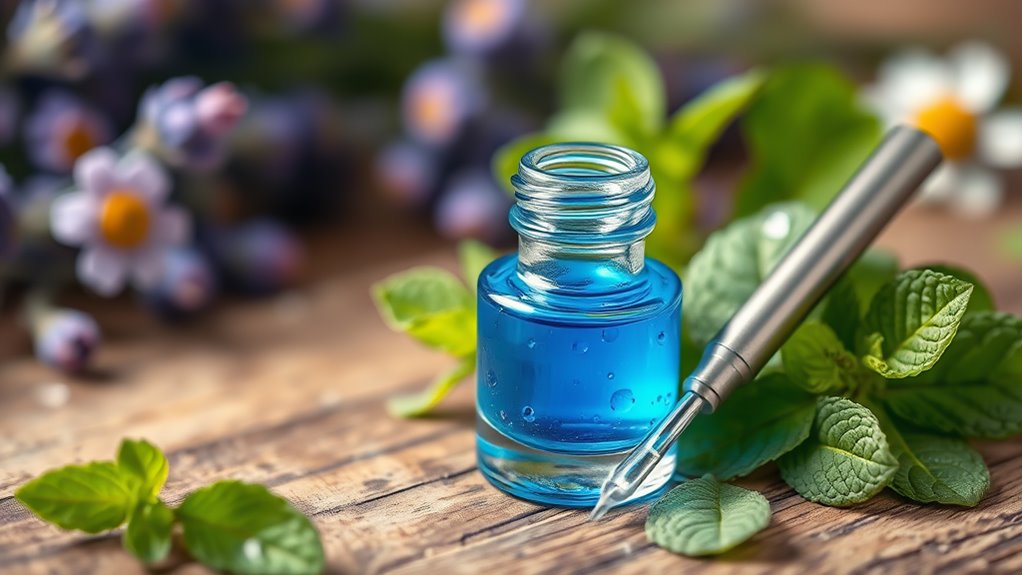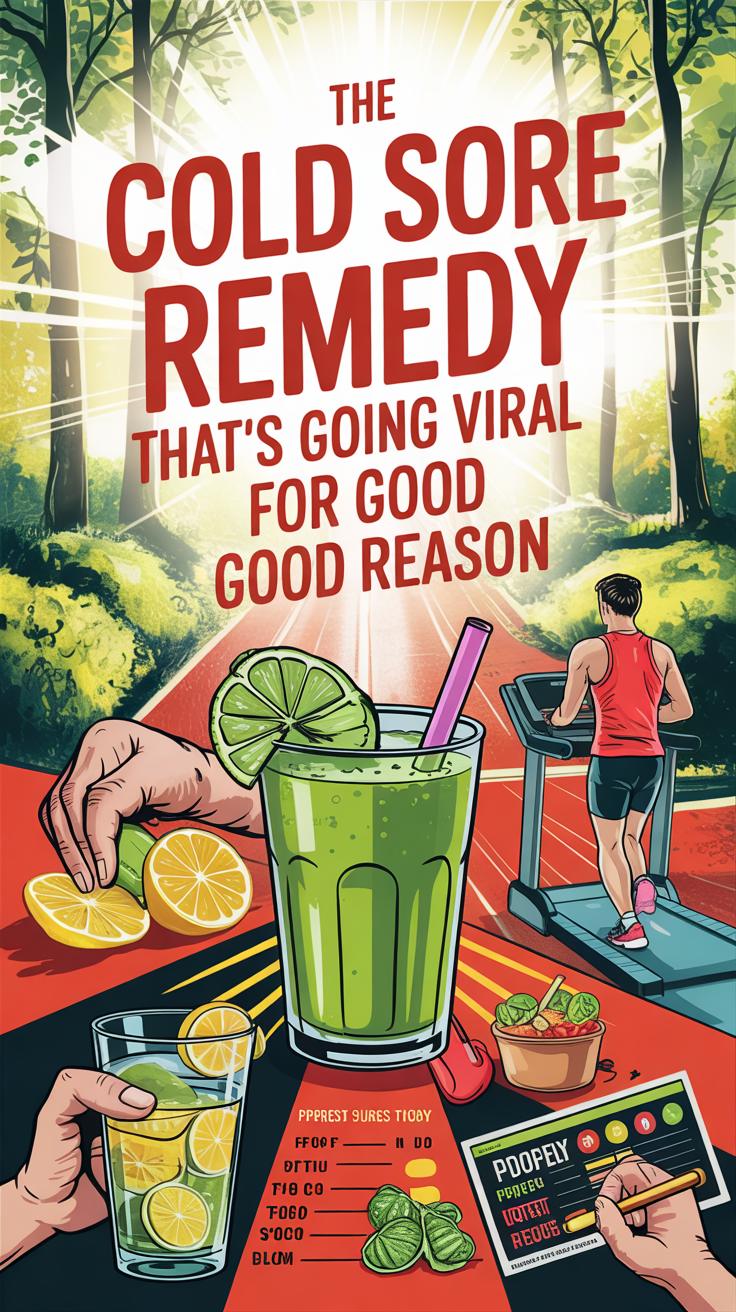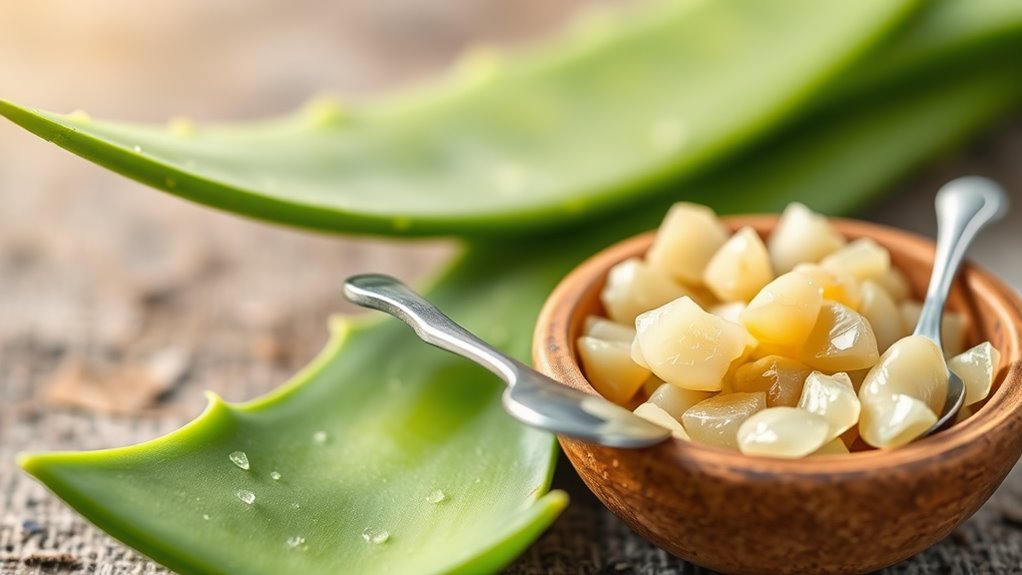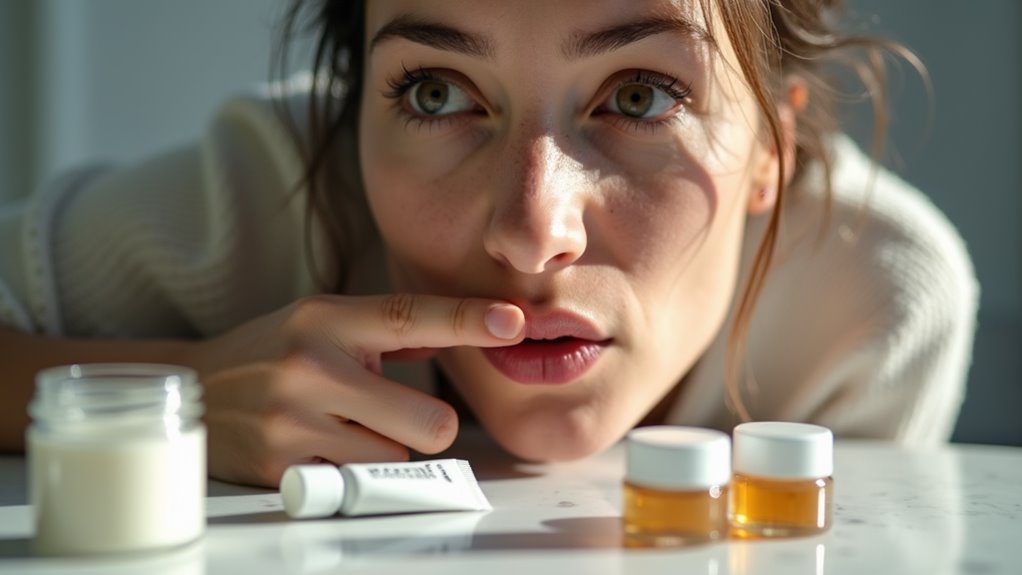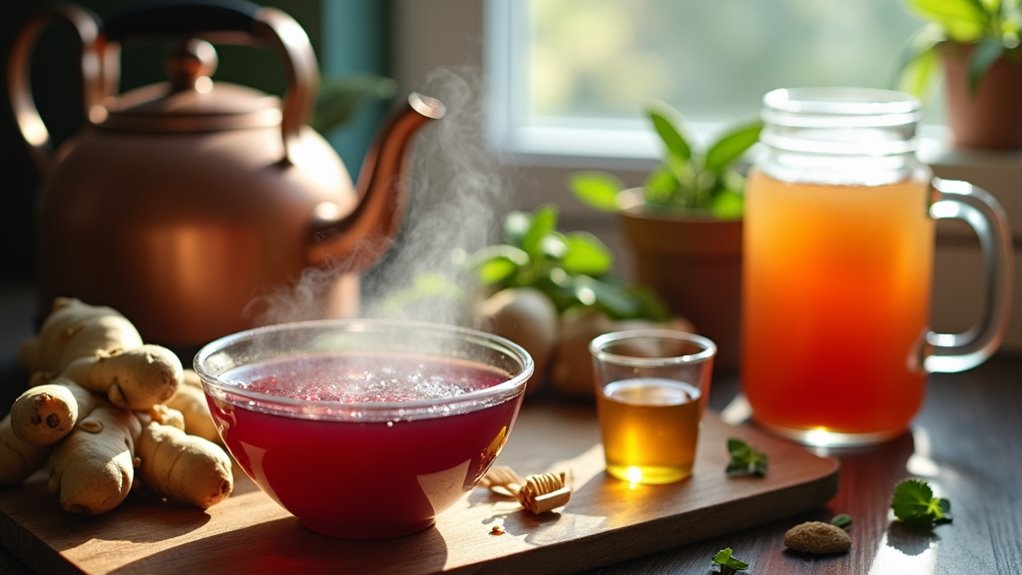The Cold Sore Remedy That’s Going Viral for Good Reason
Valacyclovir’s become a game-changer for cold sores, offering a dramatic reduction in healing time and discomfort. This antiviral works by effectively targeting the herpes simplex virus, reducing symptoms within 24-48 hours when taken early. With flexible dosing options and a solid safety profile, it’s well-tolerated by most people. Plus, combining it with topical treatments can enhance results. If you’re curious about other remedies and strategies for prevention, there’s more to explore.
Understanding Cold Sores: Causes and Symptoms
Cold sores, those small but uncomfortable blisters often found on the lips, are primarily caused by the herpes simplex virus type 1 (HSV-1). You can contract this virus through simple actions like kissing or sharing utensils. Triggers for outbreaks include sun exposure, stress, and hormonal changes. You might feel a tingling sensation before blisters form, leading to irritation and soreness. The virus is spread via kissing, which can contribute to its prevalence among individuals. While there’s no cure, effective cold sores remedies can help manage symptoms and speed healing. Typically, these sores heal within two weeks, but recognizing triggers can help minimize future outbreaks and improve your comfort during episodes. During an outbreak, it’s important to note that cold sores are contagious from the first tingle until fully healed.
The Rise of Valacyclovir: A Breakthrough Antiviral
If you’re looking for an effective way to manage cold sores, valacyclovir might be the breakthrough you need.
This antiviral boasts enhanced bioavailability, meaning it gets into your system faster and works more effectively than older treatments. With valacyclovir, you can expect quicker relief from symptoms and a shorter healing time, helping you get back to your routine sooner. It is important to start taking it at the first signs of a cold sore to maximize its effectiveness, as two-thirds of people under 50 carry the virus causing these outbreaks. Additionally, starting treatment immediately can lead to significant improvement within 24-48 hours, making it a crucial step for those prone to outbreaks.
Enhanced Bioavailability Benefits
Valacyclovir has emerged as a revolutionary antiviral, primarily due to its enhanced bioavailability. It’s absorbed three- to fivefold better than acyclovir, leading to more effective concentrations in your system. This means you benefit from quicker and more efficient reductions in herpes outbreaks and symptoms. Additionally, valacyclovir converts to acyclovir in the body once administered, enhancing its anti-herpes effects.
| Benefit | Description |
|---|---|
| Higher Absorption | Absorbed better than acyclovir |
| Effective Concentrations | Increases acyclovir systemic levels |
| Therapeutic Impact | Reduces herpes outbreak severity |
| Dosing Convenience | Flexible one- or two-day treatment options |
| Reduced Resistance | Low likelihood of resistance developing |
With these advantages, valacyclovir remains a top choice in antiviral treatment.
Quick Symptom Relief
When managing herpes outbreaks, achieving quick symptom relief is a top priority, and that’s where valacyclovir shines.
This antiviral, when taken at the first sign of symptoms, can reduce the episode duration by about a day. Its one-day, high-dose regimen simplifies treatment adherence while effectively suppressing symptoms. Valacyclovir works within 24–48 hours, providing relief from pain and discomfort faster than other options. Studies confirm its efficacy across demographics, with side effects similar to placebo. Additionally, oral valacyclovir increases acyclovir bioavailability three- to fivefold, enhancing its effectiveness in treating cold sores.
How Lysine Works: Nature’s Alternative Remedy
How does lysine work as nature’s alternative remedy for cold sores?
Lysine, an essential amino acid, plays a vital role in protein formation and collagen synthesis. It interferes with arginine, which herpes simplex virus type 1 (HSV-1) relies on for replication. By limiting arginine’s activity, lysine can help slow down HSV-1 replication, potentially reducing the duration and frequency of cold sore outbreaks. While promising, research on lysine’s effectiveness is mixed, and healthcare providers often hesitate to recommend specific dosages. Including lysine-rich foods like meat and fish in your diet can help support your body’s defenses against cold sores, as it aids in boosting the immune system. HSV-1 requires arginine for its replication, making lysine’s role even more crucial in managing these infections.
Comparing Oral and Topical Treatments: What’s More Effective?
Which treatment option should you consider—oral or topical for cold sores?
Oral antivirals like acyclovir and valacyclovir reduce healing time by about one day when taken early, targeting viral replication systemically.
In contrast, topical options like penciclovir and docosanol require frequent applications but can also shorten outbreaks.
While oral medications offer quicker results—showing effects in 24-48 hours—topicals necessitate precise timing and can risk virus transfer if applied improperly.
Ultimately, if you’re seeking speed and convenience, oral treatments may be your best choice, whereas topicals might suit those looking to manage local symptoms effectively. Additionally, understanding your personal triggers can help you decide which treatment method to prioritize.
Early Intervention: Timing Is Everything
When you notice those first tingles signaling a cold sore, quick action is key.
Recognizing early symptoms and starting treatment can significantly reduce healing time and severity.
Don’t wait—your prompt response could make all the difference in managing outbreaks effectively. Additionally, using natural remedies from your kitchen, such as honey and ginger, can help soothe irritation and speed up recovery.
Importance of Quick Action
Timing’s crucial when it comes to tackling cold sores—acting quickly can make all the difference in your recovery.
When you first notice that tingling sensation, don’t wait.
Early intervention can significantly reduce the severity and duration of an outbreak.
By treating the cold sore right as it begins, you might prevent the sore from fully developing or at least experience a smaller, less painful lesion.
Plus, quicker healing means you’ll feel more comfortable sooner.
Identify your triggers, whether stress or sun exposure, to better manage future outbreaks and improve your overall quality of life.
Don’t underestimate the power of swift action!
Optimal Treatment Timing
How critical is it to start treatment for cold sores as soon as symptoms appear?
It’s vital!
Early antiviral medications, like acyclovir and valacyclovir, drastically reduce the severity and duration of an outbreak when taken at the first hint of tingling or itching.
Applying topical antivirals before blisters form can prevent full-fledged cold sores.
The sooner you intervene, the better your chances of limiting the outbreak’s impact.
Delaying treatment can lessen the effectiveness, as antivirals work best before visible lesions emerge.
Don’t wait; timely action can significantly shorten healing time and potentially reduce virus transmission.
Early Symptom Recognition
Recognizing early symptoms of a cold sore can make all the difference in managing an outbreak effectively.
Acting quickly allows you to mitigate discomfort and reduce the outbreak’s severity and duration.
Pay attention to these signs:
- Tingling or burning sensation where the sore will form
- Numbness around the mouth, a sign of impending blisters
- Swollen lymph nodes indicating viral reactivation
Identifying these symptoms can prevent misdiagnosis and help you start treatment early.
Don’t let a cold sore catch you off guard—awareness and timely intervention are key to maintaining control over outbreaks.
Prophylactic Strategies: Reducing Outbreak Frequency
What steps can you take to minimize cold sore outbreaks?
First, consider daily oral antivirals like valacyclovir if you have frequent cases, as they can significantly reduce outbreak frequency.
Protect your lips with SPF lip balm to avoid sun-induced triggers.
Incorporate stress management techniques into your routine, since stress can exacerbate your susceptibility.
A balanced diet, adequate sleep, and moderate exercise can bolster your immune system, helping keep the virus at bay. Additionally, using ingredients like zinc and vitamin C-rich foods can further enhance your body’s defenses against infections.
Lastly, pay attention to your outbreak patterns to identify and avoid specific triggers, and maintain good hygiene practices to prevent reinfection.
Safety and Tolerability of Cold Sore Treatments
When considering treatments for cold sores, it’s essential to evaluate their safety and tolerability.
Here are some key points to keep in mind:
- Antiviral Tablets: Drugs like acyclovir and valaciclovir are effective and well tolerated, often shortening healing time.
- Combination Treatments: Using antiviral creams alongside tablets can enhance effectiveness while maintaining a good safety profile.
- Natural Alternatives: Lysine, a safe natural compound, is often used without reported adverse effects. Additionally, nutritional deficiencies can increase susceptibility to outbreaks, making dietary considerations important in managing cold sores.
The Role of Stress Management in Outbreak Prevention
Stress weakens your immune system, making it easier for the herpes simplex virus to reactivate. When you experience prolonged stress, the likelihood of cold sore outbreaks increases.
To combat this, incorporate stress management techniques into your routine. Deep breathing, meditation, and regular exercise can help. Additionally, addressing daily stressors and ensuring adequate sleep is vital. Regular practice of calming techniques, such as the 4-7-8 breathing method, can significantly reduce stress levels and promote better sleep quality.
Personalizing Your Approach: Finding the Right Treatment for You
Managing stress effectively lays the groundwork for a tailored approach to treating cold sores.
Personalizing your treatment helps you find what works best for you, so consider these key factors:
- Identify triggers: Understand what causes your outbreaks, like stress or sun exposure.
- Explore treatments: Experiment with both over-the-counter and prescription options to see what fast-tracks your healing.
- Adopt preventive measures: Stay hydrated, maintain a balanced diet, and manage stress with activities like yoga or meditation.

